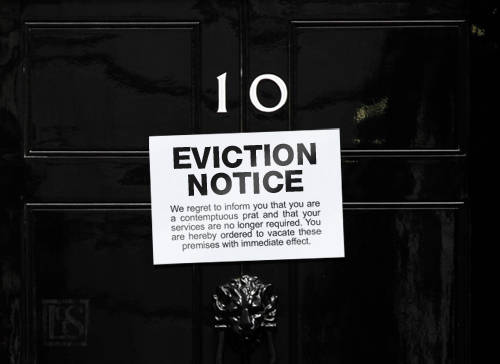When you’re renting your first apartment and trying to whip your life into shape, you might have a lot of questions about what’s about to happen: How do you enter a lease? What rules do you have to follow? Can I have visitors? You can always search the web for awesome advice from sites like Whippio. But at Rentable, we’re here to help make your life as a renter easy, so here are the top 25 questions commonly asked by first-time — or simply curious — renters!
1. How do I pay rent?
Rent rates are set in the lease, as well as the due date and how the rent will be processed by the landlord. As soon as you sign the lease, you’ve legally agreed to the terms, so be sure you fully understand the document before you sign.
The way you pay your rent varies depending on the landlord’s preferences. Sometimes it’s as simple as sending a check in the mail. But some landlords support online payments or can set up automatic withdrawals so you don’t have to remember the due date. Be sure to reference your lease or ask your landlord how they prefer to receive rent before it comes due.
2. Can a landlord raise my rent during my stay?
Landlords are allowed to raise the rent once the lease has expired. If you decide to stay in the same apartment next year, you should read your new lease carefully and make sure the rates haven’t gone up. If they have, see if you can negotiate with your landlord. If you are renting a month-to-month apartment, then rent increases are more likely to occur. In this case, landlords can raise the rent every month if they wish. But it’s important to note that many states require a 30 day notice before the rent is officially raised. This will give you time to find a new place if you cannot afford the new rent price.
3. What is my security deposit for?
The security deposit is a set amount of money that the landlord takes from you as collateral for the structural integrity and cleanliness of the house. In other words, this money is set aside by the landlord to inspire tenants to take good care of their rental property, and if you don’t, it gives them the opportunity to recoup those losses.
4. How do I get my security deposit back?
If you keep the house in good condition and don’t inflict any damages on the property, then you will get your security deposit back at the end of your lease. To ensure that there are no misunderstandings between you and the landlord, be sure to take inventory of any wear-and-tear you see when you move in, preferably via photo. This way no pre-existing damages can be mistakenly blamed on you and you can get your security deposit returned fair and square. Generally, landlords are required to return the security deposit 30 days after the lease ends.

5. What are utilities and how are they paid for?
Utilities are the basics you need any housing unit: electricity, heat, water, trash pickup. Sometimes these bills are included in your rent payment and are handled by your landlord, but other times the tenant directly receives the bill. Be sure to ask your landlord about utilities before signing the lease so you know what you’ll be expected to pay for.
6. What is the difference between a month-to-month and a fixed-term lease?
It is very important to know the difference between these two terms, as they will determine how long you’ll stay at a place and sometimes even the rent price. A fixed-term lease is an agreement that states the tenant will remain in the apartment or home for a pre-determined amount of time — usually a year. Month-to-month leases also tend to have higher rent prices because the landlord is not guaranteed income for the next month. Unless you are in a precarious or time-sensitive situation, it’s often a better financial call to go with the fixed-term lease.
7. Am I entitled to know if anything bad happened in the unit before I was here?
Your right to know what happened in a house or apartment before you rented it — called disclosure laws — varies depending on what state and area you reside in. Some areas require landlords to fully disclose, while other areas just require disclosure of violent deaths. Many areas have an expiration date on event disclosure. In other words, if someone committed suicide in your home five years ago, then a landlord might not be required to disclose. If you are concerned about the previous tenants of your apartment or other tenants in your building, your best bet would be to speak to the neighbors or do a little research in the local records.
8. How do I know if my furniture is right size for the apartment I’m getting?
Be sure to know the size of your furniture before going to look at apartments. It might feel a bit odd, but bringing a tape measure to an apartment tour can be extremely useful. Jot down the measurements of certain walls and openings, and compare the with the furniture you plan to bring. If you’re unable to measure the dimensions of the apartment you’re looking at, ask the landlord for some measurements. After all, new furniture can be a bit pricey, so you want to make sure that you get an apartment that will accommodate the items you already have.
9. I want make some changes to my apartment decor. How far can I go?
Making simple aesthetic changes, like swapping furniture, is not a problem (unless you rented a furnished unit). But if you want to make changes to the apartment itself — like painting or mounting some shelves on the wall — you will need to check the terms of your lease. Many landlords have a clause in the lease requiring written permission, so even if you receive verbal permission from your landlord, be sure to cover your butt and get a written document specifically telling you what you can and cannot do.
Foregoing landlord permission can leave you with a financial mess at the end of the lease term if you aren’t able to reverse all of the changes. It’s much easier to be straightforward with your landlord and simply ask what kind of changes you’re allowed to make.

10. Someone has been staying at my place for a long period of time. How does this work?
If you have roommates, you’ll want to consult them before bringing visitors — especially longer-term visitors — into your home. Secondly, check your lease terms to see if your landlord has already outlined a guest policy for how long people not on the lease are allowed to stay on the premises. Many leases have special terms that add extra rent costs when more residents occupy the apartment. Sometimes the leases forbid new tenants altogether, as many landlords don’t want to be responsible for people not signed on the list.
11. I got a pet and my landlord doesn’t know about it. What should I do?
First off, don’t put yourself and your pet in a bad position by taking in an animal into a building that is not pet friendly. That being said, if pets are allowed in your building, let the landlord know immediately. You will likely have to put down an extra pet deposit or tack on a fee to your monthly rent to cover for potential property damages. If pets are not allowed in your building, you will likely either have to move out or get rid of the pet. All buildings have the right to forbid pets, aside from support animals.
12. I want to sublet my place. Is this allowed?
Subletting entirely depends on what is stated in your lease and your local tenant laws. Some landlords welcome sublets and others would rather not deal with the complications, but in some areas, regardless of what your lease states, your landlord cannot forbid you from subletting. If you have any questions, be sure to ask your landlord. If you find someone to sublet your room/apartment, be sure to inform your landlord of the tenant change. Keeping open communication is essential on this issue.

13. What kind of exterior maintenance will I be responsible for?
Your level of responsibility for the exterior of the house depends on what kind of rental you have and the terms dictated in the lease. If you live in a large apartment complex, the courtyard will often be cared for — whether it be lawn mowing or snow shoveling — by the building’s maintenance team. If you live in a house, you are often responsible for the yard maintenance. Be sure to read your lease carefully to avoid any confusion.
14. There is a community courtyard outside. Am I allowed to garden?
The rules on this vary dramatically from building to building. If you’re interested in gardening and don’t have a balcony, it’s unlikely that the apartment building will have an allotted area for gardening. It can’t hurt to ask, but keep in mind that the answer will likely be no.
15. Where is my parking space?
Not every home or apartment comes with a parking spot, and in many situations, a parking spot will be an additional monthly fee. Be sure to ask during your apartment walk-through how parking works. Is there a parking lot or do tenants rely on street parking? Do you have a space assigned to you or is parking a free-for-all? If parking is assigned, where are visitors supposed to park? All of these questions are important for inspecting a potential apartment, especially if you have car.
16. Are landlords required to make repairs?
Landlords are required to make routine repairs in a timely fashion, no matter how small. Major repairs that compromise day-to-day living for tenants should be a top priority. If your landlord does not respond to your first request, then send a second request with a repair deadline. After all, you are paying to live there. You are entitled to a clean, functioning household. If major repairs go ignored for more than five days, contact your local tenant union to discuss your options.
17. What repairs is my landlord responsible for, and what repairs am I responsible for?
This can be tricky. What repairs landlords are responsible for can vary. But as a generalization, landlords are usually responsible for all repairs except extremely small ones, such as changing lightbulbs. To prevent yourself from the liabilities that are involved with performing maintenance yourself and having it go poorly, check with your landlord before starting any project. In apartment building common areas — such as laundry rooms and hallways — landlords are responsible for even tiny repairs like lightbulb changes. If you have asked your landlord to fix something or repair something that’s their responsibility but they are refusing, depending on the laws in your state, you may sue the landlord for personal injuries, including pain or suffering as a result of defective housing conditions.
18. When is a landlord allowed to enter my home?
As long as you are paying, landlords must generally stay out of a property as long as tenants are paying rent. The only exceptions are in the case of an emergency, a repair, or a house showing for potential tenants in the future. Most states require a landlord to give 24-hour notice before entering the unit, but that, too, can vary by city. Some areas have no set minimum for advance notice.
19. Am I allowed to ask neighbors about the history of the landlord and the building before I sign the lease?
No one can dictate who you can and cannot talk to in the building. Feel free to inquire about the history of the landlord and building. But keep in mind that, depending on your approach, this might not look great for you if the word gets back to your potential landlord.
20. How do I deal with noisy neighbors?
You pay rent, so you have the right to enjoy peace and quiet in your home. Now you just need to know who to go to. If you live in an apartment complex, it is most certainly your landlord’s problem. If you live in a house, report them to the local police station. Before you go to any higher authorities, sometimes it’s just easier to knock on your neighbor’s door and politely ask them to be quiet.

21. What happens when I don’t pay rent on time?
Always be sure to communicate with your landlord. Telling them that your rent is coming late might be a bit embarrassing, but it’s much better than sending a check that will bounce or just not paying the rent at all. Keep in mind that if you don’t pay rent on time continuously, the landlord has the right to issue an eviction notice.
22. I need to move out early and break the terms of my lease. How does this work?
Hey, we know that not everything goes as planned. Maybe you need to move back home. Maybe your job has relocated you. Regardless of the reason, breaking the terms of a lease is never an ideal situation. Often a lease will include an early-release clause, which requests one or two months’ rent from the tenant after they vacate. If there are no terms, you’ll need to negotiate with your landlord. Always be straightforward with your landlord about your situation, respectful of their needs, and apologetic. Sometimes a little kindness really does go a long way.
23. I think my landlord is breaking the law. Now what?
Is your landlord infringing on your rights as a tenant? Well, if you haven’t discussed the problem with them yet, be sure to approach them first without taking any further action. If you spoken with them several times about the issue and they still haven’t taken action, then you can take legal action. Consult a lawyer that specializes in real estate and housing. If you’re a student at a large university, your institution may offer free or discounted legal services to students.
24. I’ve just received an eviction notice. Now what?
First and foremost, don’t panic. Receiving an eviction notice certainly isn’t a good thing, but it’s not the end of the world either. The landlord isn’t going to kick you out yet. You still have a short period to work this out. Usually the eviction notice will list the reason. If you haven’t been paying rent, you can try to pay your debts and see if the landlord will take you back. If your landlord has another complaint, correct it and then see where you stand. Sometimes landlords will simply ask you to move out unconditionally, meaning that there is no hope of kissing and making up. However, only a court can issue an eviction order in most areas.
Looking for an apartment to ask questions about?
[pl_button type=”important” link=”https://www.rentable.co/”]We got ’em all here![/pl_button]
Photo Credits: Laila la Domptable
